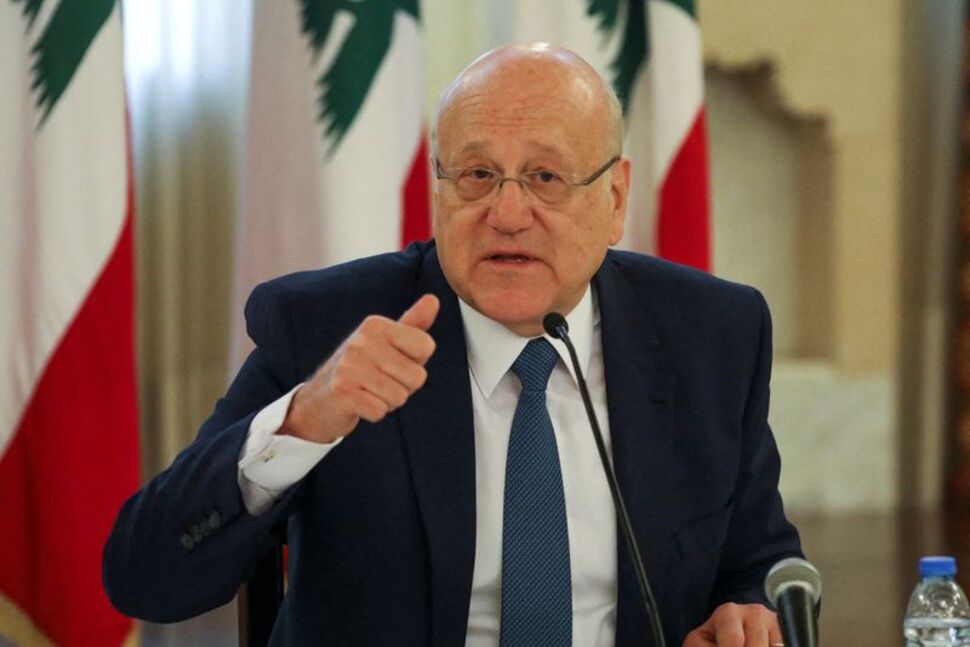
By Najia Houssari – arabnews.com — BEIRUT: An abrupt decision by Lebanese caretaker Prime Minister Najib Mikati to postpone the start of daylight saving time by one month has turned into a major political dispute, overshadowing the country’s dire economic crisis. Despite repeat IMF warnings over the state of the Lebanese economy, the latest political controversy surrounding the postponement from March 25 to April 21 is dominating debate in the country. The dispute over daylight saving time also involves religious and sectarian differences, and comes as Muslims mark the holy month of Ramadan. It means those fasting must break their fasts an hour earlier than planned. Lebanese institutions on Saturday took divergent positions on the move.Multiple media outlets (MTV Lebanon, LBCI and AlJadeed) said that it “will not abide by the decision and will commit to the universal time.” According to one political observer, the dispute reflects a “political vacuum, given that an absurd decision was explained in a sectarian way.”
This dispute “showed the loss of confidence in the ruling political class and the scale of randomness that political action in Lebanon can slip into.” The postponement caused confusion among institutions working with other states, notably the international airport, banks and mobile phone networks that automatically adjust to daylight savings each year. Airlines were forced to reschedule flights, and the two major mobile networks in the country sent a written message to subscribers, asking them to “manually adjust the time on their mobile phones before the midnight of Saturday-Sunday, to avoid the time change on their screens.” Secretary General of Catholic Schools Father Youssef Nasr said: “Private educational institutions and the Federation of Private Educational Institutions will abide by Mikati’s decision until it is reversed.” Mikati’s move was met with sarcasm on social media platforms. One political activist said: “We are in the republic of wasting time.” Another said: “It looks like Lebanon’s connection to the global system is not important.” Other warned that the decision “was taken by leaders who do not acknowledge the presence of others in the country.”
Free Patriotic Movement MP Saeed Nasr said in a press conference: “Such decision leads to many problems and disruptions in software, applications and electronic devices that rely on daylight saving time in their operations, thus resulting in errors in setting times and dates, delaying production and delivery processes, which could possibly affect banks and SWIFT payments. Meanwhile, amid political dispute over the postponement — with opposition to the move led by FPM MPs and MP Nadim Gemayel — the Lebanese Cabinet is scheduled to hold a session on Monday to discuss boosting salaries and incentives following a collapse in the wages of public and private sector employees.
Retired army members are likely to protest in Riad Al-Solh Square in central Beirut during the Cabinet meeting, following a similar move earlier this week. Veteran representatives said that the call to protest came after negotiations with the government failed to meet their basic demands, especially fair and legal wages and an increase in medical and educational benefits.
The National — The announcement was made by the secretary general of the Council of Ministers, who acted on Prime Minister Najib Mikati’s decision to “exceptionally” amend the change. No other reason was given. Daylight savings will be introduced from midnight on the 20th of April.
The move comes as Muslims mark the religious month of Ramadan. It means those fasting will break their fast an hour earlier than if the clocks had changed. As of Friday 24 March, the sun was predicated to set at 5.52PM Beirut time. In Lebanon’s bitterly divided political scene, the move was met with some short shrift. Gebran Bassil, the leader of the Free Patriotic Movement party and a frequent critic of Mr Mikati, said the move was “not acceptable”. Given the short notice, and the fact that Lebanon’s daylights saving hours are normally aligned with Europe, it was unclear how the move might affect things like electronic devices.
Flag carrier Middle East Airlines announced that it was bring flights forward by an hour to not affect any passengers taking flight transfers. Amid the daylight saving decision, footage was leaked of a discussion between Mr Mikati and parliamentary speaker Nabih Berri over the debacle. The footage appeared to have come from a meeting the two held on Thursday at Mr Berri’s residence. “Lets do this thing,” Mr Berri says according to the footage. “Instead of it being seven o’clock, it will stay six o’clock from now until the end of Ramadan. At the end of Ramadan we’ll turn back the clock.” “But I submitted this proposal and they told me they asked you and you refused,” Mr Mikati retorts. “No, no, no,” Mr Berri responds.
“That’s what they told me,” says Mr Mikati. “I wanted it this way. I wanted it to delay to the last Saturday of April.” “Yes, make it so,” says Mr Berri. “It can’t be done. There are flights and a world of problems,” responds Mr Mikati, adding that taking the decision would be “difficult”. Nonetheless, it appears that eventually the decision was taken to postpone daylight savings.



